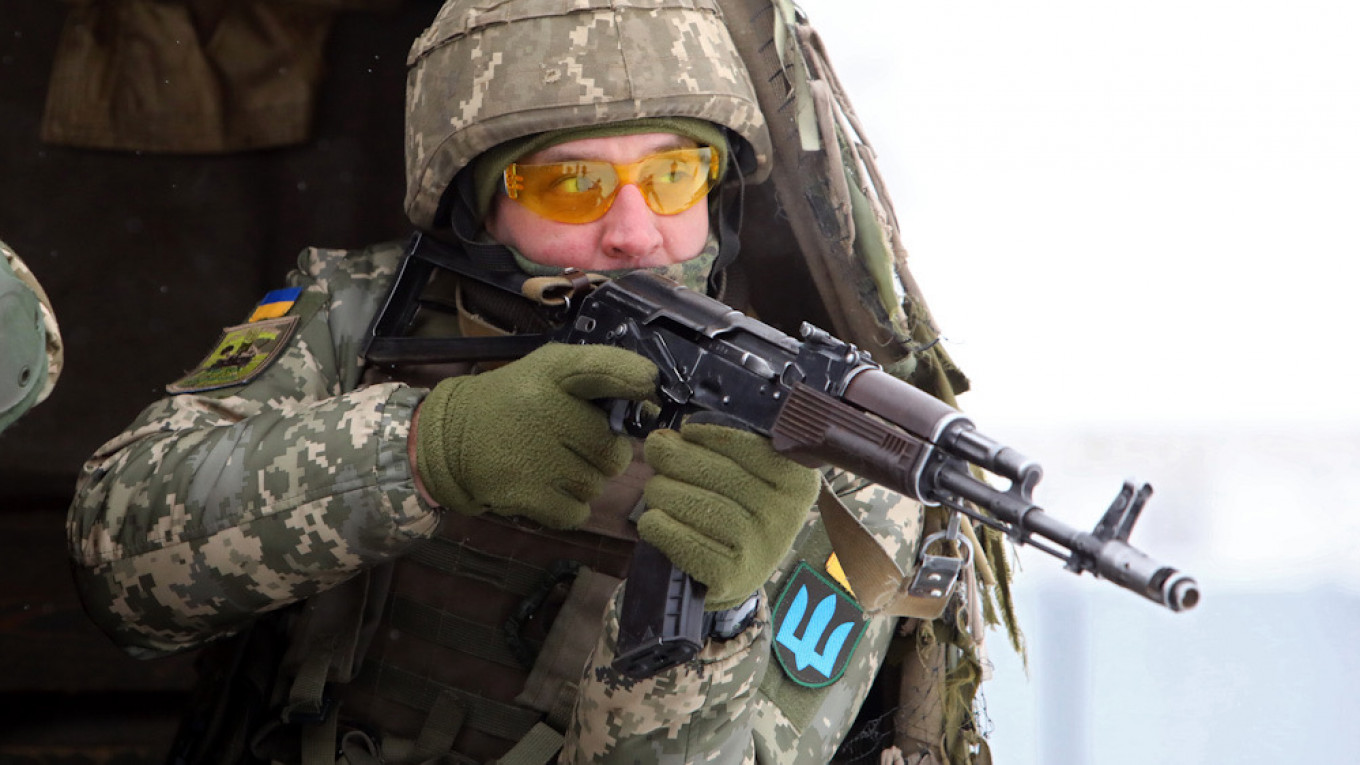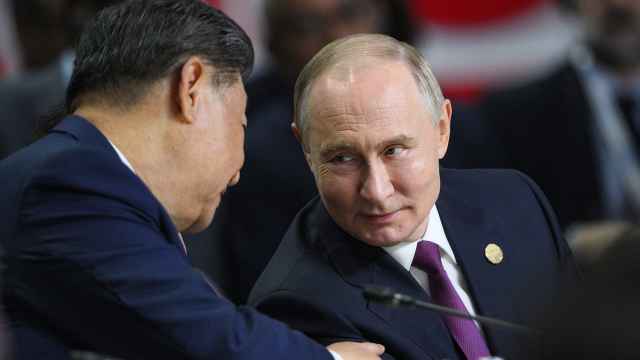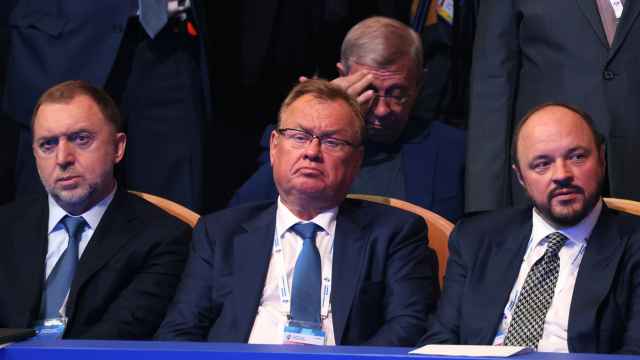Is a peace plan that seems to be going nowhere better than no peace plan at all? Is it more dangerous to face grim facts or to pretend to believe comforting fictions? When applied to the Minsk peace process over the Donbass conflict, these seemingly philosophical quandaries have a weekly toll in blood and treasure.
The Minsk peace process is hardly looking in good shape.
Just as it is often said that the Holy Roman Empire was neither holy, nor Roman, nor an empire, so too this is no longer anchored in Minsk — as Kiev has said that it cannot trust Lukashenko to be an honest broker — nor has it ensured peace, nor can it really be said to be ‘“processing.”
To be sure, it had its day and its moment. Two of them, in fact. They were, to be blunt, never likely to be the basis for any lasting resolution of the conflict, just a way of forestalling escalation (above all, Russian escalation).
The first Minsk Protocol of 2014 and then the 2015 Minsk II package led to short-lived and patchy ceasefires and above all managed to forestall Russian escalations that could have triggered full-scale war. They also brought some small-scale remedies, from prisoner exchanges to monitoring by the Organisation for Security Cooperation in Europe (OSCE).
That was more than six years ago, though. In many ways it says it all that the OSCE’s role is essentially to provide as complete as possible a daily list of breaches of the ceasefire, of crossing points over the line of contact arbitrarily closed, of tanks and heavy weapons spotted close to the frontline, in contravention of the deal. Much of this has to be gathered by remote monitoring and by drone — when the drones aren’t jammed by Russian electronic warfare systems.
Let it go
Last week, the Council on Geostrategy, a new thinktank devoted to exploring the prospects for a global Britain in a post-Brexit era, published a piece in which I advanced a deliberately provocative suggestion, that we ought to recognize that:
"The trouble is that Minsk is not only dead, it is a rotting corpse slumped over the conference table. It is not only failing to bring peace to the Donbass, it prevents potential new negotiations, or even an honest conversation about the conflict."
It is not that I want to see a resumption of full-scale hostilities: quite the opposite. Rather, I do not believe it is a moribund, six-year old document that constrains any of the sides in this toxic conflict.
Instead of the inchoate collection of militias of 2014-15, Ukraine now has increasingly confident 250,000-strong armed forces.
The rebel forces could not prevail against them; frankly, they could not even in the early years of the war, which was why Moscow had periodically to send in its regulars to prevent a government victory. At the same time, Russia can still defeat Ukraine on the battlefield, but only if it is prepared to show its hand openly and throw in the scale of forces needed – and also accept the substantial losses this would mean. This is a balance of terror.
Not least for the people on both sides of the line of contact, and especially in the pseudo-states. Subject to arbitrary local thug-states, deprived of their Ukrainian social benefits, facing economic hardship and rising levels of coronavirus, their lives have been left hostage to an illusory — delusory — peace process that simply isn’t going anywhere.
The problem is that neither side will give way on a fundamental point. Moscow argues that Kiev must grant the rebels special status now that elections have been held. Kiev denounces these elections as shams, and says it needs first to have its authority to the regions restored. Neither will or can give ground.
My suggestion was thus that it was time to recognize that the Minsk process had run its course — and may if anything be blocking any more meaningful dialogue.
Ukraine, Russia and the pseudo-states cannot be the ones to say this first, lest they lay themselves open to being denounced as warmongers and dealbreakers.
Besides, both Germany and France injudiciously threw their weight behind Minsk II and still stand as its bankrupt guarantors. If they are not willing to start this conversation, I suggested, maybe it could be the U.K.?
Better than nothing?
The responses, both public and private, were interesting. Some sought, predictably enough, to paint one side or the other as the villains of the peace. This may be satisfying, but it is exactly the kind of zero-sum politics that perpetuates the current volatile status quo. Others sought to salvage the reputations of Paris or Berlin, which is another problem, as both countries are unwilling to admit they may have done long-term harm in the name of short-term good.
A more thoughtful line of argument was best exemplified by Russian scholar Sergei Utkin of the Primakov Institute of World Economy and International Relations (IMEMO), who felt it was a “surprisingly adventurous and potentially disastrous proposal.” In an exchange we held on Twitter, he argued that
"If negotiations fail in an ongoing conflict, arms speak (and they can do it much louder than at the current imperfect ceasefire). Keeping things at the negotiations table is important even if no progress is achieved in years — a balance, albeit shaky, is valuable."
This is a perfectly defensible and honorable position.
To do away with a peace process when there is nothing ready to take its place is a scary move. Yet it also rests ultimately on the assumption that it is Minsk II, not the day-by-day realities on the ground, that prevents escalation. As the fears over spring’s build-up of Russian forces demonstrate, it is hard to take that guarantee as read.
The trouble is that the status quo is too bearable for all the players.
Kiev has little real incentive to reintegrate a restive and now war-ravaged badlands. Moscow is having to subsidize the Donbass, but better that than acknowledge defeat and lose what little traction it may have on Ukraine.
The warlords of the pseudo-states can enrich themselves and avoid trial. And while the West may get an occasional scare, such as during the spring’s Russian build-up of forces, it can generally reassure itself with the antiseptic language of ‘frozen conflicts’ and unresolved disputes.’
It is arguably rather less tolerable on the ground. Ordinary Ukrainians in the pseudo-states face unemployment, hardship, and vicious crackdowns when they try to protest or unionize. Water supplies are becoming contaminated and whole industries dying, all of which also poses massive challenges for any future reintegration. As Brian Milakovsky has recently argued in Krytyka,
"The time has passed when we could leave the resolution of economic and infrastructure issues to be naturally resolved when the elusive comprehensive political settlement is negotiated in Minsk, or any other platform."
I would note, after all, that all the voices I heard from inside the Donbass, as well as many in both Kiev and Moscow, admitted Minsk was both unworkable and unrepairable.
Ukrainian president Zelenskyy has called for movement, arguing that “we can change the Minsk format, adjust it. Or we can use some other format,” but there seems little scope for the former, as the disagreement is nor about format but goals and political will.
Instead, something needs to be done to break the logjam. Dispensing with the tired mantra that “Minsk is the only deal on the table” and instead clearing the table. There is no reason why prisoner exchanges, family reunion rights, OSCE monitoring and the rest cannot be maintained outside a single, overarching document. And maybe, this would provide the incentive and opportunity for something new.
But this is one of those cases where the tolerable is the enemy of the better. What may work in Moscow, Paris and Berlin may not work so well in Kiev — and be positively oppressive in Donetsk and Luhansk, Perevalsk and Ilovaisk.
A Message from The Moscow Times:
Dear readers,
We are facing unprecedented challenges. Russia's Prosecutor General's Office has designated The Moscow Times as an "undesirable" organization, criminalizing our work and putting our staff at risk of prosecution. This follows our earlier unjust labeling as a "foreign agent."
These actions are direct attempts to silence independent journalism in Russia. The authorities claim our work "discredits the decisions of the Russian leadership." We see things differently: we strive to provide accurate, unbiased reporting on Russia.
We, the journalists of The Moscow Times, refuse to be silenced. But to continue our work, we need your help.
Your support, no matter how small, makes a world of difference. If you can, please support us monthly starting from just $2. It's quick to set up, and every contribution makes a significant impact.
By supporting The Moscow Times, you're defending open, independent journalism in the face of repression. Thank you for standing with us.
Remind me later.








